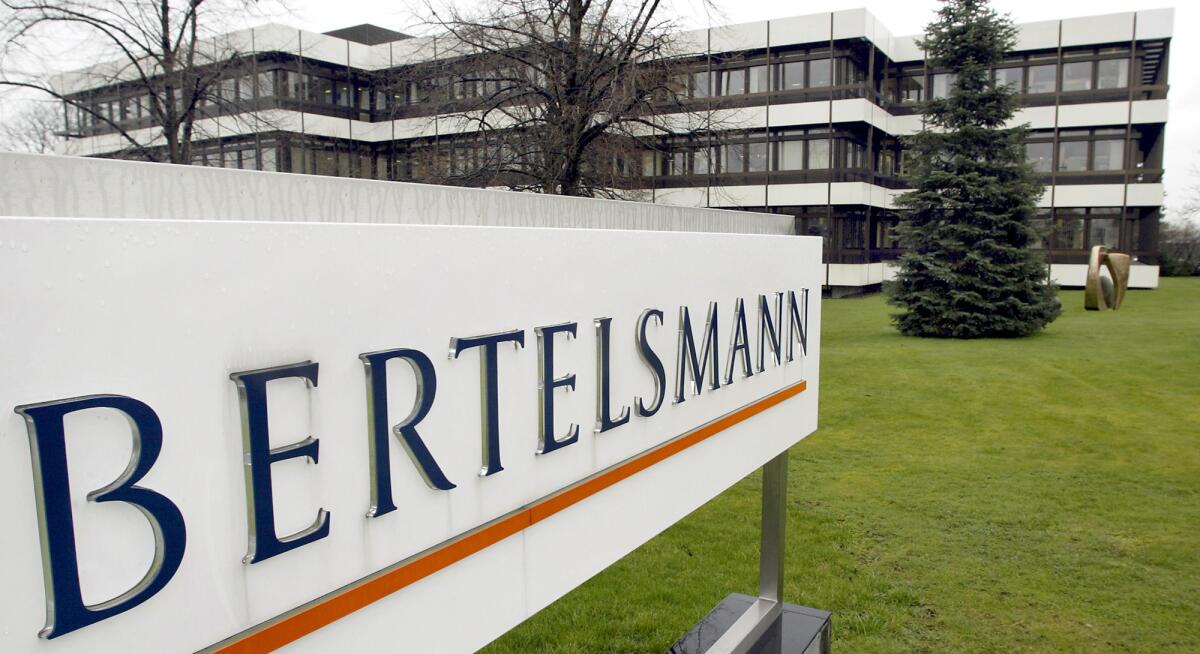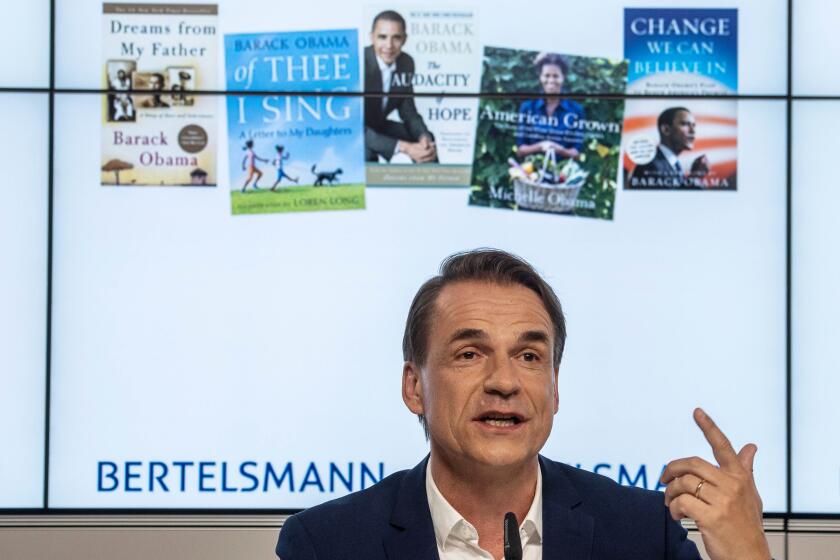U.S. files antitrust suit to stop major book publisher merger

U.S. regulators are suing to block a $2.2-billion book publishing deal that would have reshaped the industry, saying consolidation would hurt authors and readers.
German media giant Bertelsmann’s Penguin Random House, already the largest American publisher, wants to buy New York-based Simon & Schuster — which has authors who include Stephen King, Hillary Clinton and John Irving — from TV and film company ViacomCBS.
The Department of Justice filed an antitrust suit Tuesday in U.S. District Court for the District of Columbia, saying the deal would let Penguin Random House “exert outsized influence over which books are published in the United States and how much authors are paid for their work.”
“If the world’s largest book publisher is permitted to acquire one of its biggest rivals, it will have unprecedented control over this important industry. American authors and consumers will pay the price of this anticompetitive merger — lower advances for authors and ultimately fewer books and less variety for consumers,” Atty. Gen. Merrick Garland said in a statement.
ViacomCBS has announced plans to sell Simon & Schuster to publishing giant Penguin Random House LLC for a whopping $2.18 billion next year.
The lawsuit broke down the argument in greater detail: “Competition between Penguin Random House and Simon & Schuster has resulted in higher advances, better services, and more favorable contract terms for authors. The proposed merger would eliminate this head-to-head competition, enabling the merged firm to pay less and extract more from authors who often work for years at their craft before producing a book.”
The filing offered three examples of situations where competitive bidding between the two publishing houses resulted in advances that were larger by six-figure amounts.
Jonathan Karp, president and chief of Simon & Schuster, called the lawsuit news “unsettling” in a memo to staff that was obtained by The Times. He said his company and Penguin Random House would work together to fight the government’s lawsuit.
“Notably, DOJ has not alleged that the acquisition would harm competition in the sale of books,” Karp said in the memo. “Simon & Schuster and Penguin Random House strongly disagree with the DOJ that this transaction will harm competition and believe firmly that there is no basis for these claims.”
The planned merger of Penguin Random House and Simon & Schuster may be global but it’s bad for books both foreign and domestic.
The purchase of Simon & Schuster would reduce the so-called Big Five of American publishing — which also includes HarperCollins, Hachette Book Group and Macmillan — to four.
Alleging that author contracts had “become fairly standardized over time,” the lawsuit noted that “[w]ith fewer players and an obvious leader, the Big Four would likely find it easier to reach and sustain a consensus that harms authors through coordination.”
In its own statement, the Authors Guild expressed surprise at the antitrust suit, a notable change in policy that it welcomed, though lamenting it could be too little, too late.
“Today’s decision by the DOJ was unexpected given that so many other major mergers and acquisitions in the publishing industry have gone through recently and over the last few decades with nary a raised eyebrow from DOJ, leaving us with only a handful of companies dominating the industry,” Mary Rasenberger, CEO of the Authors Guild, said in a released statement.
Rasenberger went on to push the DOJ to address an even larger anticompetitive force in publishing: Amazon.
“More importantly, the decision raises the bigger question that goes beyond traditional publishers to the consolidation of distribution channels and Amazon’s monopsony of book retail,” she continued. “We look forward to working with the Biden Administration on antitrust reform that gets to the root of the problems in the industry, whereas the proposed merger was just a symptom.”
Christie D’Zurilla is a staff writer for The Times; Arbel writes for the Associated Press.
More to Read
Sign up for our Book Club newsletter
Get the latest news, events and more from the Los Angeles Times Book Club, and help us get L.A. reading and talking.
You may occasionally receive promotional content from the Los Angeles Times.








